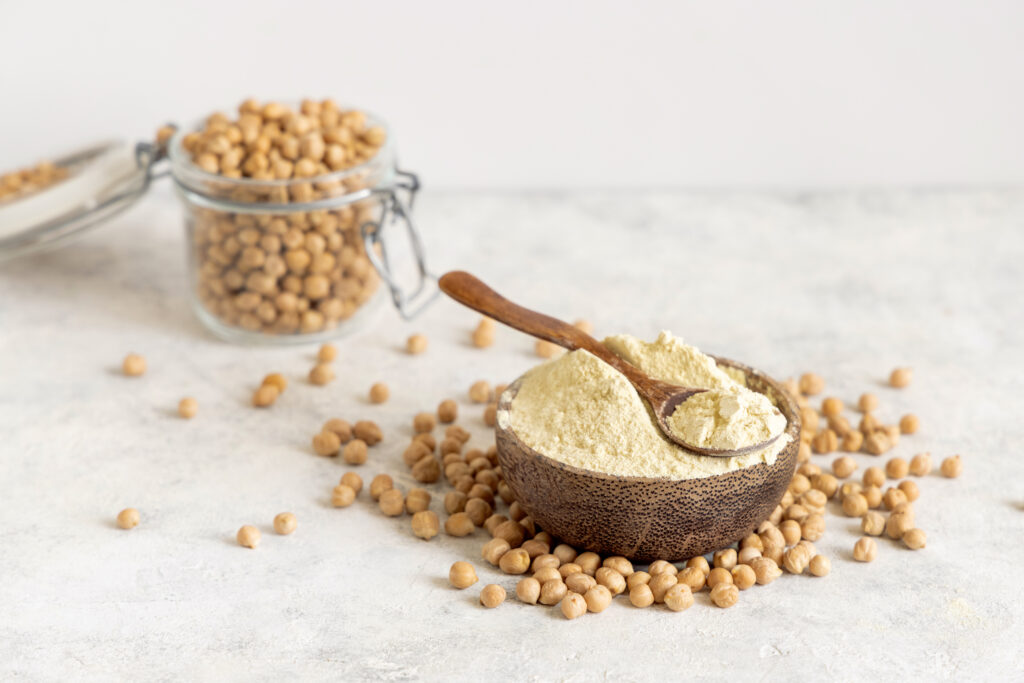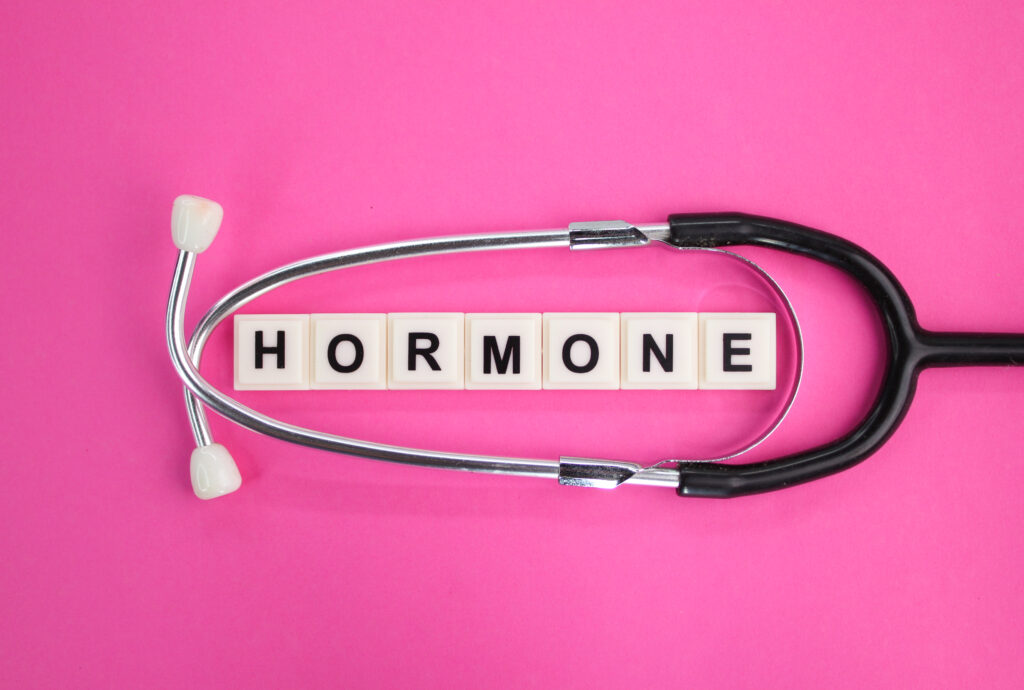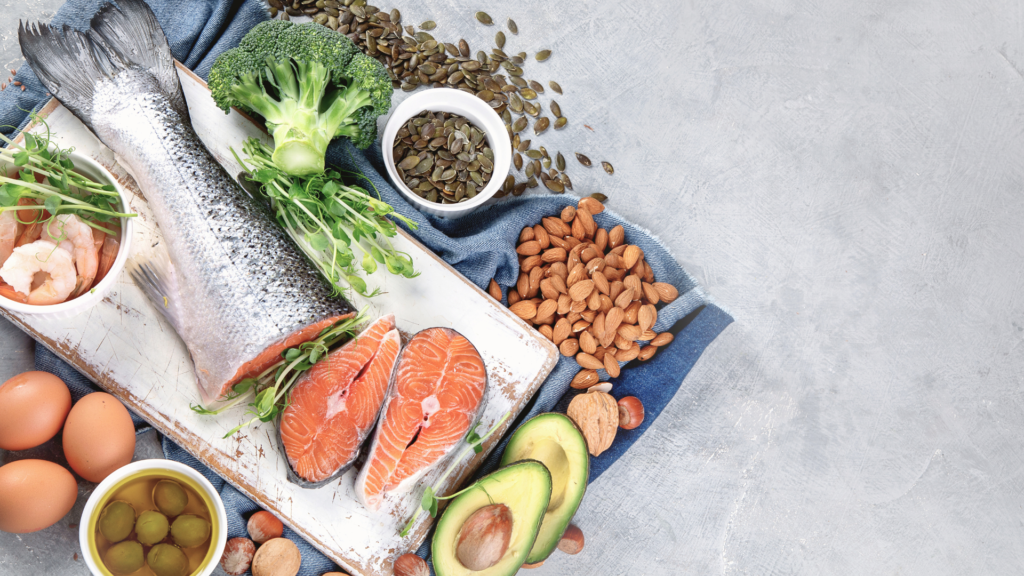How Can You Release Stress from Your Body Every Day?

Stress. It’s something we all deal with daily. But did you know it’s not just an emotional reaction? When stress hits, our bodies respond physically, too. Whether it’s work pressures, relationship struggles, or just life, stress can wreak havoc on your physical health. Left unchecked, it can lead to all sorts of issues, including: • Belly fat• Difficulty losing weight• Period problems• Blood sugar fluctuations• Poor sleep• Grogginess in the mornings• Digestive problems Fortunately, there are simple, daily habits you can incorporate into your routine to stop stress in its tracks and keep your body feeling better. Here are six things I do every day to release stress from my body, and trust me—they make a world of difference. This tiny habit helps activate your parasympathetic nervous system, which is responsible for relaxation. It also lowers your heart rate and reduces cortisol levels—the hormone linked to stress. Movement encourages better circulation, which in turn helps reduce the physical symptoms of stress. Plus, it gives your mind a mini-break to reset. Walking is a simple way to lower cortisol and release endorphins, the “feel-good” hormones that improve mood and reduce stress. And let’s be honest, sometimes you just need to step away from your screen and get outside! Shaking helps release pent-up energy that can accumulate when you’re stressed. It’s an easy and effective way to give your body a reset without any fancy equipment or long time commitments. Oxytocin, often called the “love hormone,” is released during physical touch, which can counteract the stress response. It’s a great way to strengthen emotional bonds while also helping your body and mind relax. Tapping works by sending signals to the brain that it’s safe to relax. It’s quick, easy, and can be done anywhere without drawing too much attention. Plus, it’s a great tool to have in your stress-relief toolkit for those moments when you need instant relief. The Power of Tiny HabitsNone of these stress-relief techniques require a lot of time, money, or special skills. They’re small, simple habits that you can easily fit into your daily routine. And when done consistently, these tiny actions add up, helping your body recover from stress and protect your overall health. The best part? You’re in control. By taking a few minutes out of your day to focus on releasing stress, you’ll notice a big difference in how you feel—both physically and mentally. So, next time life gets a little too hectic, try out these six habits. Your body (and mind) will thank you for it. Book a call today to start your journey to a more vital and healthier you!
Can Seed Cycling Really Help with Period Problems?

Period problems? I’ve got you covered. If you’re like many women, managing your monthly cycle can feel like a never-ending battle with bloating, mood swings, cramps, and fatigue. But what if you could reduce some of these symptoms by simply tweaking your diet? The idea of using nutrition to support menstrual health isn’t new, but there’s been growing buzz around a specific practice—seed cycling. While it may sound a little out of the box, many people swear by its benefits for hormone balance and smoother periods. Let’s explore the science, the claims, and how you can easily incorporate seed cycling into your routine to see if it’s the right fit for you. The Mediterranean Diet and Menstrual HealthResearch already supports the link between nutrition and menstrual health. Following a Mediterranean diet, rich in healthy fats like olive oil, nuts, fruits, and vegetables, has been shown to ease period symptoms. This diet is anti-inflammatory and provides the body with essential nutrients that may help in regulating hormones and reducing menstrual discomfort. But seed cycling takes things a step further by focusing on specific seeds and when to eat them, aligning with the phases of your menstrual cycle. So, What Exactly Is Seed Cycling?Seed cycling involves consuming different types of seeds during specific phases of your menstrual cycle. The idea is that certain seeds provide nutrients that help balance hormone levels, making your periods more manageable. While there are no clinical trials yet to back up seed cycling specifically, the individual seeds used in this practice do contain powerful nutrients known to support hormonal health. The Seeds and Their SuperpowersHere’s a breakdown of the nutrients found in these seeds that are believed to benefit hormone balance: ✔️ Lignan Phytoestrogens: Found in flax seeds, these compounds may mimic estrogen and help balance hormone levels. ✔️ Omega-3 Essential Fatty Acids: Found in pumpkin and flax seeds, these are anti-inflammatory and can support overall hormonal health. ✔️ Zinc, Magnesium, and Vitamin E: Found in sesame and sunflower seeds, these nutrients are essential for hormone production, especially progesterone during the second half of your cycle. How Seed Cycling WorksWith seed cycling, you switch up the seeds you consume depending on where you are in your menstrual cycle. Here’s how it breaks down: Phase 1: Days 1-14 (Follicular Phase) – During this phase, estrogen levels begin to rise. To support estrogen production and balance, it’s recommended that you eat one tablespoon each of ground flax seeds and pumpkin seeds daily. Phase 2: Days 15-28 (Luteal Phase) – During this phase, progesterone levels rise. To support this hormone, eat one tablespoon each of sesame seeds and sunflower seeds daily. How to Incorporate Seeds Into Your Daily RoutineIf the idea of eating plain seeds doesn’t sound appealing, no worries! There are plenty of delicious ways to sneak them into your meals without much effort. Here are a few ideas to get you started: Add them to your smoothie: Ground seeds blend perfectly into your morning smoothie without affecting the taste. Mix into yogurt: Stir in a tablespoon of seeds for a bit of texture and a nutritional boost. Toss them into salads: Sprinkle seeds over your favorite salads for an extra crunch and added nutrition. Sprinkle over toast, nut butter, and fresh fruit: Ground seeds pair well with avocado toast, peanut butter, or even fresh berries for a quick, healthy snack. Why Consider Seed Cycling?While seed cycling doesn’t have a strong body of research behind it yet, the individual components in the seeds are well known for their benefits in hormone health. Plus, this practice is all-natural, easy to try, and has no known negative side effects. Even if you don’t notice immediate relief from period symptoms, the added nutrients are still beneficial for your overall health. Nutrition is just one of the many ways you can support healthier hormones and easier cycles. If you’re looking for more comprehensive support or have more complex hormone-related issues, you may benefit from personalized guidance. Is Seed Cycling Right for You?At the end of the day, seed cycling is a low-risk, potentially high-reward practice. While it might not be a miracle cure for everyone, it could be an easy and effective way to take control of your menstrual health and experience less painful, more balanced periods. If you’re struggling with period problems and looking for natural ways to support your hormone health, seed cycling could be worth a try. And if you need more tailored advice or have questions about your specific hormone health, it’s always a good idea to reach out to a healthcare provider. Book a call today to start your journey to a more vital and healthier you!
Should You Be Eating More Phytoestrogens for Better Health?

Fun fact: People in Asian countries consume 10x the soy isoflavones as people in Western countries. But what does the research say about phytoestrogens, and how can they impact your health? What Are Phytoestrogens?Phytoestrogens are plant compounds found in foods that mimic estrogen in the body. Some common sources include: ✔️ Isoflavones in soy✔️ Lignans in flax seeds✔️ Resveratrol in wine These compounds are gaining attention for their potential health benefits, especially when it comes to breast cancer. The Research: Phytoestrogens and Breast Cancer RiskStudies show a correlation between a diet rich in phytoestrogens and a lower risk of breast cancer, particularly in premenopausal women, and a reduced risk of recurrence after menopause (PMID 35241506, 38070485). How Much Should You Eat?For the biggest benefits, aim for about 60 mg of soy isoflavones daily, or roughly 2-3 servings of soy. However, soy can be tricky—it’s a common allergen and often genetically engineered or heavily processed. The Key: Quality MattersTo avoid the pitfalls of processed soy, look for organic, minimally processed options like tofu, tempeh, miso, and edamame. These will give you the benefits without the unwanted additives. Need Help?If navigating all this feels overwhelming and you’d prefer a personalized plan for your hormonal health, we’re here to guide you. Book a call today to start your journey to a more vital and healthier you!
Are All Estrogens the Same?

In the expansive world of health and wellness, the topic of estrogen and its impact on the body is surrounded by layers of complexity and widespread misconceptions. One commonly held belief is the association between estrogen and an increased risk of breast cancer. However, this narrative only scratches the surface of a much deeper and more nuanced understanding of estrogen’s role in our bodies. Diving Deeper into the World of Estrogen Estrogen is not a single entity but a group of hormones that play critical roles in both women’s and men’s health. The journey into the estrogen realm reveals the existence of various estrogen metabolites, each with its unique effects on health and disease. Some of these metabolites present a higher risk of contributing to breast cancer than others. Yet, it’s the interplay between these metabolites and other factors—such as genetics, liver enzymes, antioxidants, and biochemical pathways—that ultimately influences breast cancer risk. Estrogen: A Piece of a Larger Puzzle Understanding estrogen’s place in the body highlights its significance as part of a larger puzzle. Achieving healthy estrogen metabolism is key to minimizing disease risk and ensuring hormonal balance. So, what proactive steps can you take to support this process? Strategies for Healthy Estrogen Metabolism Customizing Your Approach Given the individualized nature of hormonal health, the most effective strategies are those tailored specifically to you. This customization considers your unique health profile, lifestyle, and risk factors, ensuring a targeted and effective approach to hormonal balance. Embracing Support on Your Journey In navigating the complexities of estrogen and hormonal health, knowledge is your best ally. Yet, embarking on this journey alone can be daunting. Recognizing when to seek guidance from health professionals can pave the way to a healthier, more balanced you. Your Next Steps toward Hormonal Harmony Understanding estrogen’s multifaceted role illuminates the path to better health but taking the first step on this path can be the hardest. Whether you’re seeking to balance your hormones, reduce disease risk, or simply enhance your overall well-being, personalized support can make all the difference. Are you ready to embrace a healthier, more balanced approach to your hormonal health? Book a call today to start your journey to a more vital and healthier you. With tailored support, you can achieve the hormonal harmony needed for a vibrant life. Our dedicated team is here to guide you every step of the way.
What Is Your Body Trying to Tell You About Your Hormones?

Navigating the intricate world of hormones can be tricky, but your body provides signals that can help you understand what’s going on beneath the surface. Have you noticed symptoms like bloating, breast tenderness, or heavy periods? These could be signs of high estrogen. On the other hand, hot flashes, night sweats, and dryness might point towards low estrogen. But wait! Let me finish. While these symptoms often indicate hormonal imbalances, they are not the sole possibility; other health issues may exhibit similar signs. It’s crucial to consider your complete health picture, including medical history and lab tests, to pinpoint the exact cause of your discomfort. Yet, I believe in empowering you with knowledge about your body. More women need to understand the subtleties of hormonal changes, particularly as they approach mid-life. Understanding PerimenopausePerimenopause can onset as early as 35 years old. A common occurrence during this time is the decline of progesterone before estrogen declines, potentially creating a state of relative high estrogen. This means you might experience: 👉 Worsening PMS symptoms👉 Increased bloating👉 Heavier periods These are not necessarily the symptoms traditionally associated with “menopause,” but they are critical in understanding your body’s hormonal landscape during perimenopause. It’s Not All Bad News There is a silver lining! We have an extensive array of tools at our disposal to support healthy hormonal balance and make the transition into different life stages as smooth as possible. Lifestyle modifications, nutritional adjustments, and the right supplementation can make a world of difference in how you feel. By recognizing the signs and taking proactive steps, women can navigate hormone health with greater ease and confidence. If these issues resonate with you, or if you’re looking to understand your body better, don’t hesitate to take the next step. Want to get a better handle on your hormone health? Book a call today to start your journey to a more vital and healthier you. Together, we can tackle the symptoms and work toward optimal well-being, no matter what your hormones are up to.
Are You Navigating Your Hormonal Health at Every Stage of Life?

Understanding the ebbs and flows of hormone balance through different life stages is crucial for maintaining optimal health, yet it’s something that most women find perplexingly complex. From premenopause through to postmenopause, hormonal shifts can significantly affect your physical and emotional well-being. Are you equipped with the knowledge to navigate these changes confidently? Premenopause (Typically Under Age 40)In the premenopausal stage, experiencing a monthly period is the norm. Your body and emotions might feel like they’re on a rollercoaster due to the natural rise and fall of estrogen and progesterone levels throughout each month. A critical hormonal imbalance to watch out for during this time is estrogen dominance. This occurs when there’s an excess of estrogen compared to progesterone, leading to symptoms like heavy or painful periods, breast tenderness, mood swings, and bloating. Perimenopause (Can Begin as Early as Age 35)Perimenopause marks a transition, averaging around four years, but it can stretch up to a decade. This period is characterized by significant hormonal fluctuations, resulting in changes to menstrual cycle length and regularity. A notable hormonal imbalance during perimenopause is low progesterone, which can happen when progesterone levels decline more rapidly than estrogen. Signs to look out for include insomnia, headaches, and anxiety. Postmenopause (Average Age of 51)Reaching postmenopause means going 12 months without a menstrual period and entering a stage naturally associated with lower levels of estrogen and progesterone. Supporting Hormone Health at Any StageRegardless of your current life stage, certain strategies can support your hormone health: ✔️ Nurture your body with high-quality proteins and healthy fats to sustain energy and hormonal balance. ✔️ Manage stress efficiently and support your adrenals with essential nutrients and adaptogens, assisting in maintaining stable hormone levels. ✔️ Promote liver health and healthy hormone metabolism through antioxidants, helping in the detoxification of excess hormones. ✔️ Optimize gut health and digestion with a diet rich in fiber, probiotics, and anti-inflammatory foods to improve nutrient absorption and hormone regulation. ✔️ Enhance muscle strength and metabolic health with regular resistance training, crucial for overall well-being and hormone balance. Embracing a holistic and tailored approach to hormone health is essential, as there’s no universal solution. Each stage of life presents its unique challenges and opportunities for nurturing well-being through informed hormonal balance management. Seeking a personalized approach to hormone health? If you’re looking for strategies specifically tailored to your body and its needs, a journey toward a more vital and healthier you awaits. Book a call today to start your journey to a more vital and healthier you.
Looking for Healthy Lunch Options? Have You Tried These?

When lunchtime rolls around, it’s easy to fall into the habit of grabbing a quick and often unhealthy bite. But with a little preparation and creativity, you can transform that mid-day meal into a nutritious and delicious energy booster. Ready to shake up your lunch routine with some wholesome and easy-to-prepare options? Wholesome Lunch Ideas to Keep You Going Quinoa Salad BowlQuinoa, a powerhouse of nutrition, forms the perfect base for a salad bowl. Here’s a simple and delightful way to bring this superfood into your lunch repertoire. Ingredients: Cooked quinoa, olive oil, lemon juice, cucumber, tomatoes, olives, chickpeas, and your choice of protein (think chunks of chicken or cubes of cheese).Preparation: Toss your ingredients together and season to taste. It’s a refreshing meal that’s packed with protein, fiber, and good fats. Mediterranean WrapSavor the flavors of the Mediterranean with a wrap that’s easy to make and even easier to enjoy. Ingredients: Hummus, a whole grain or low-carb wrap, cooked chicken, lettuce, red onions, tomatoes, and feta cheese.Preparation: Spread hummus on your wrap, layer with the chicken and veggies, sprinkle with feta cheese, roll it up, and you’re good to go! Chicken SaladPut your leftover chicken to good use with a salad that’s anything but boring. Ingredients: Leftover chicken, mayo, celery, grapes, sunflower seeds or nuts, and the creamy touch of avocado.Preparation: Simply mix these ingredients together, season as desired, and enjoy. It’s a perfect balance of textures and flavors with the added bonus of being high in protein. Greek Yogurt ParfaitFor those who lean towards the sweeter side, a Greek yogurt parfait can double as a dessert and a nutritious lunch component. Ingredients: Greek yogurt, fresh berries, granola, and a sprinkle of chia seeds or hemp hearts.Preparation: Layer these ingredients in a jar or bowl for a treat that’s as visually appealing as it is tasty. Each of these lunch options is designed to be a simple, healthy, and delicious way to fuel your day. Whether you are a meal prep pro or just looking for something to whip up quickly, these ideas are sure to satisfy.
Can Guess What Boosts Energy, Improves Mood, and More?

In our fast-paced world, we’re all looking for that magic solution that boosts our energy, relieves stress, elevates our mood, and even protects against most chronic illnesses. What if I told you there’s something incredibly effective, absolutely free, and available to everyone? Have you guessed it yet It’s MOVEMENT! That’s right—even the simplest forms of physical activity can dramatically improve your health. Whether it’s a morning jog, a quick stretch between meetings, or a leisurely walk post-lunch, the body’s need to move is profound and deeply intertwined with our overall health and well-being. Why Moving Your Body Matters So Much Boosts Energy: Engaging in physical activity enhances the efficiency of energy production in your body. It boosts circulation, ensuring that oxygen and nutrients are efficiently delivered to your muscles and organs. Relieves Stress: Physical activity increases the production of endorphins, the brain’s natural mood elevators. This biochemical process not only diminishes the discomfort associated with exercise but also leaves you feeling exhilarated and happier. Improves Mood: Regular physical activity can have a profoundly positive impact on depression, anxiety, and ADHD. It also relieves stress, improves memory, helps you sleep better, and boosts your overall mood. Protects Against Chronic Illnesses: Regular movement can help prevent or manage a wide range of health problems and concerns, including stroke, metabolic syndrome, type 2 diabetes, depression, a number of types of cancer, arthritis, and falls. How to Incorporate More Movement Into Your Day Before Work: Try starting your day with some dynamic stretches or a quick set of bodyweight exercises like squats, push-ups, or sit-ups. Mid-Morning: If you’re stuck at a desk, don’t forget to stand or stretch every hour. Simple desk stretches and neck rolls can keep your body active and prevent the stiffness associated with prolonged sitting. After Lunch: A walk after eating not only aids in digestion but also combats the lethargy that often hits in the early afternoon. Moving your body is one of the best ways to improve your health, and the beauty of it is that it can be tailored to fit any lifestyle or fitness level. Remember, every bit of movement counts!
Can High-Intensity Exercise Improve Brain Health in Seniors?

Aging gracefully isn’t just about maintaining physical health—it’s also about keeping our minds sharp. At the University of Queensland, researchers have turned their focus on how exercise can impact cognitive function in the elderly. Their findings? High-intensity interval training (HIIT) might just be a key to better brain health. Let’s dig into the study’s discoveries and what they could mean for seniors worldwide. The University of Queensland Study on Exercise and Cognitive FunctionThe recent study involved healthy volunteers aged between 65 and 85, who were divided into groups to participate in one of three different exercise programs over six months. They engaged in low intensity, medium intensity, or high intensity exercises, with a keen focus on understanding how varying intensities influence brain health. Here are some of the study’s highlights: Impact on the Hippocampus: The hippocampus is pivotal for learning and memory, two aspects of cognitive function that often decline with age. Remarkably, only participants in the high-intensity group showed improvements in hippocampal function after six months of training. Changes in BDNF and Cortisol Levels:Brain-derived neurotrophic factor (BDNF) is a protein that supports the survival of existing neurons and encourages the growth of new neurons and synapses. Cortisol, known as the stress hormone, can have a detrimental effect on the brain at elevated levels. The study reported that individuals practicing HIIT showed beneficial adjustments in both BDNF and cortisol levels. Long-Term Benefits: Perhaps most encouraging, the cognitive improvements observed in the HIIT group appeared to last up to 5 years, demonstrating continued benefits long after the exercise intervention had ended—even if the high-intensity exercise program wasn’t maintained. The HIIT Program for Seniors The HIIT program that yielded such promising results involved 4 cycles of running on a treadmill at nearly maximum effort. This high-intensity approach is known for its efficiency, allowing for significant health gains in relatively short workout sessions. Understanding the Implications for Senior HealthThis study shines a light on the powerful relationship between high-intensity exercise and cognitive health. It suggests that incorporating HIIT into a senior’s routine may bolster functions like memory and learning, potentially warding off cognitive decline. Adopting HIIT Safely as a SeniorBefore seniors don their workout gear and hit the maximum intensity, it’s imperative to recognize the need for proper guidance and a tailored approach, bearing in mind individual health status: Professional Supervision: It’s vital for seniors to consult healthcare providers before starting any new exercise program, especially one involving high-intensity activity.Gradual Introduction: starting slowly and increasing intensity gradually helps minimize the risk of injuries and other health complications.Holistic Approach: Combining HIIT with other forms of exercise and a balanced diet can support overall wellness and long-term brain health. The findings from the University of Queensland are indeed exciting, pointing to HIIT as a promising way for seniors to nurture both their physical and cognitive well-being. By responsibly integrating high-intensity exercise into their lives, seniors have the potential not just to enhance their current quality of life, but also to preserve their cognitive functions for the years ahead.
What Nutrients Do You Need for Better Brain Health?

In the intricate and bustling world of health nutrition, the brain’s specific nutritional requirements can sometimes be overshadowed by the broader conversation about body health. However, it’s crucial to illuminate the exceptional role diet plays in maintaining optimal brain function. After all, our brains are demanding organs; despite making up about 2% of body weight, they consume roughly 20% of our daily energy intake! Let’s dive into the key nutrients that are pivotal for maintaining a healthy brain, and find out how easy it can be to integrate them into your daily diet Essential Brain Nutrients for Peak Performance Omega-3 Fatty AcidsOmega-3 fatty acids are not just any fat; they are pivotal in the structure of neuronal membranes and are essential for the fluidity and function of brain cells. Without a steady supply, our brain’s ability to signal properly can falter. Food sources: fatty fish (like salmon and trout), nuts (such as walnuts and almonds), and seeds (including flaxseeds and chia seeds). B VitaminsThe various B vitamins have roles in the brain’s energy metabolism; thiamine (B1), for instance, is involved in the production of ATP, the energy currency of the cell. Without these vitamins, the brain cannot stay energized. Food sources: eggs, meats, and nuts, along with whole grains (like brown rice and oatmeal), which are particularly rich in various B vitamins. CholineCholine acts as a precursor for acetylcholine, a neurotransmitter intricately linked to memory and overall brain function. Adequate choline intake is imperative for cognitive processes. Food sources: egg yolks and liver stand out as some of the richest dietary sources of choline. PolyphenolsThese compounds do more than just add vibrant colors to fruits and vegetables; they help shield the brain from oxidative stress and inflammation, which can lead to cognitive decline. Food sources: berries, which are particularly high in anthocyanins, and dark chocolate and green leafy vegetables, which are loaded with various beneficial polyphenols. ProbioticsProbiotics play a fascinating role in brain health, interacting with the gut-brain axis. They can influence everything from mood to memory, and research into the “second brain” (our gut) continually reveals more about this connection. Food sources: yogurt, kefir, and kombucha are delicious and easy ways to introduce more probiotics into your diet. If you find yourself unable to incorporate these essential nutrients into your diet on a daily basis, supplementation may be a viable alternative. However, as with all dietary supplements, it’s crucial to source them from reputable providers. It’s also always a good idea to consult a healthcare professional before beginning any supplementation regimen. Whether through diet or dietary supplements, these nutrients can help support a sharp, responsive, and resilient brain. So the next time you’re at the grocery store, remember this list – your brain will thank you for it! If you have any lingering questions about brain health nutrition, feel free to reach out. We’re here to guide you on your journey to a healthier mind!



